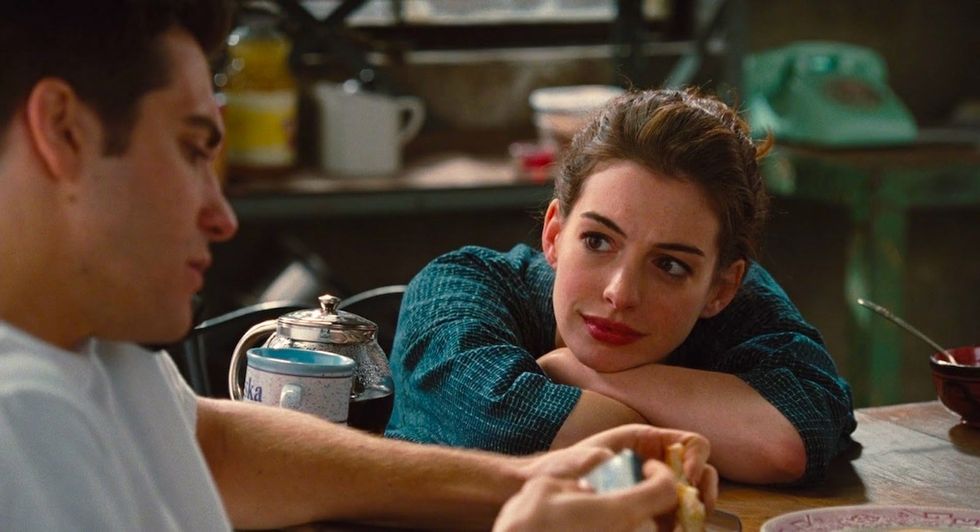
Is Romance Your Higher Power? When Falling In Love Becomes Toxic
Most people like the idea of romance but some can misinterpret its power. When the idea of falling in love becomes a distraction from necessary spiritual work, it can become toxic.
In today’s world, we’ve lost touch with authentic spirituality. Organized religion is less and less common, and although many of us have a yearning to explore the spiritual side of life, it’s difficult to cultivate a practice without a framework.
Without clear guidance, it’s easy to end up filtering our desire for the spiritual to find its way into other areas of life. Without realizing it, many of us fall into the trap of mistaking romantic love as the elixir of life — I know I certainly have.
I write a lot about romantic love, for good reason. Our culture has made a cult out of romance: just take a look at Hollywood movies, love songs, or the social expectations around finding “the one.” As enticing as it may seem, by joining the cult of romance, we make it much harder to develop an authentic spiritual practice.
The projection of spiritual needs
Why is this the case? When we see romance as some form of a higher power, a way to channel the divine aspect of life, we end up projecting our spiritual needs onto someone else: our beloved. By placing such needs onto another human, who is flawed and imperfect, we not only disempower ourselves, but place unrealistic expectations on someone else.
At one point in my life, I took pride in my relationship with women. Romance was the best thing in the world, and I worshipped and adored my partners in various relationships. Although at the time this felt like the right way to honor someone I loved, I came to realize this was far from healthy.
In fact, worshipping a partner, and seeing romance as the elixir of life, is a symptom of love addiction. Just like drugs sex and power, love becomes addictive, too. I’ve craved romantic love, had multiple relationships, and found meaning through romance. Yet for true growth, there comes a point where we have to let go of this false belief and discover spirituality for ourselves.
Love addiction and impaired spirituality

When in the midst of addiction, the source of addiction takes power over us. We might feel out of control or at the mercy of what we’re addicted to. Love is just the same. In Facing Love Addiction, Pia Mellody explains how, when in a codependent relationship, we tend to view our partner as our “higher power,” which consists of placing too much time and value on the person we’ve fallen in love with.
Mellody lists impaired spirituality as a symptom of love addiction. This borderline obsession starts off feeling good: an idealized image of our partner blinds us, they’re put on pedestal, perfect. But by assigning this person more power than they have — even viewing them subconsciously as “godlike” or “holy” — the love addict eventually “try harder and harder to manipulate the other person to live up to the mental image they have created — that is, someone who will care for and love them the way they long to be cared for and loved.”
When pedestalling a romantic partner and viewing them as a higher power (albeit unconsciously) we don’t see the person in front of us for who they truly are. Blinded by the intoxication of superficial divinity, our wants, needs, and desires are superimposed over the reality of the relationship.
The Anima and Animus

From a Jungian perspective, this process is the result of psychological projection of the anima and animus, the “soul” archetype found in men and women respectively. I’ve discussed psychological projection before, but in this instance, by failing to integrate the soul function of the psyche, the need for spiritual fulfillment is projected onto romance.
Fortunately, understanding the dynamic of love addiction and psychological projection offers a solution. Whilst the intoxication of romantic love is, at times, unavoided, by bringing awareness to the process we take back control when we project our spiritual needs onto a partner. Noticing this projection and labeling it is a powerful way to loosen its hold.
More importantly, it’s vital to reclaim individual spirituality, to resuscitate God in a way that is unique and personal. Rather than place this innate thirst for “something greater,” we find our “higher power” from within, in a way that is not reliant on the external world — be it other people or sensory pleasure.
For me, the realization of my addiction to love came around the same time I was developing my spiritual practice. The more aligned I am to my internal worship of the sacred, the less I feel the need to seek this fulfillment in my partner. I get moments where I slip up, of course.
But once this process begins, you start to notice that true love — love that lasts a lifetime, love that really matters — only begins once the projection ends, and the person standing in front of us is seen, fully, vibrantly as human, flawed, and completely lovable in their own right, away from projections and ideas.
More interesting articles:
- Is Appreciation Deficit Disorder Ruining Your Relationship?
- Your Relationship is Strong Enough to Survive — but You Need Space
- How to Identify Your Relationship Blind Spots
- What is the Correct “Love Ratio” for Your Relationship?



















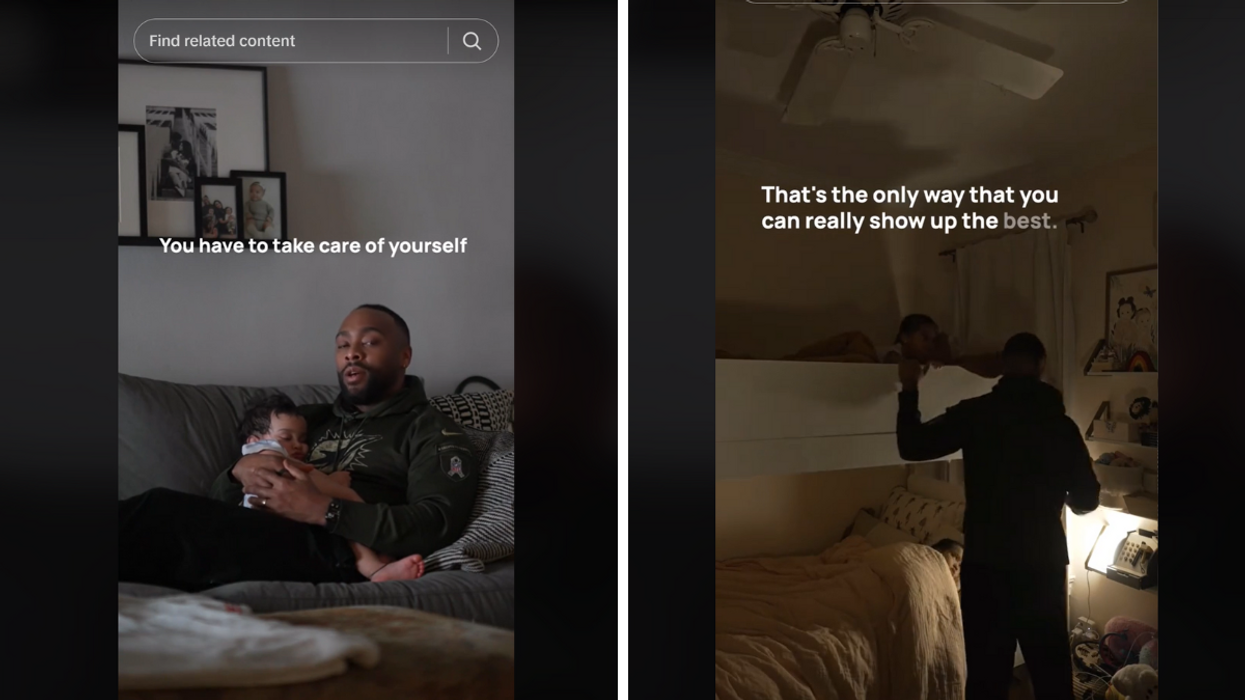


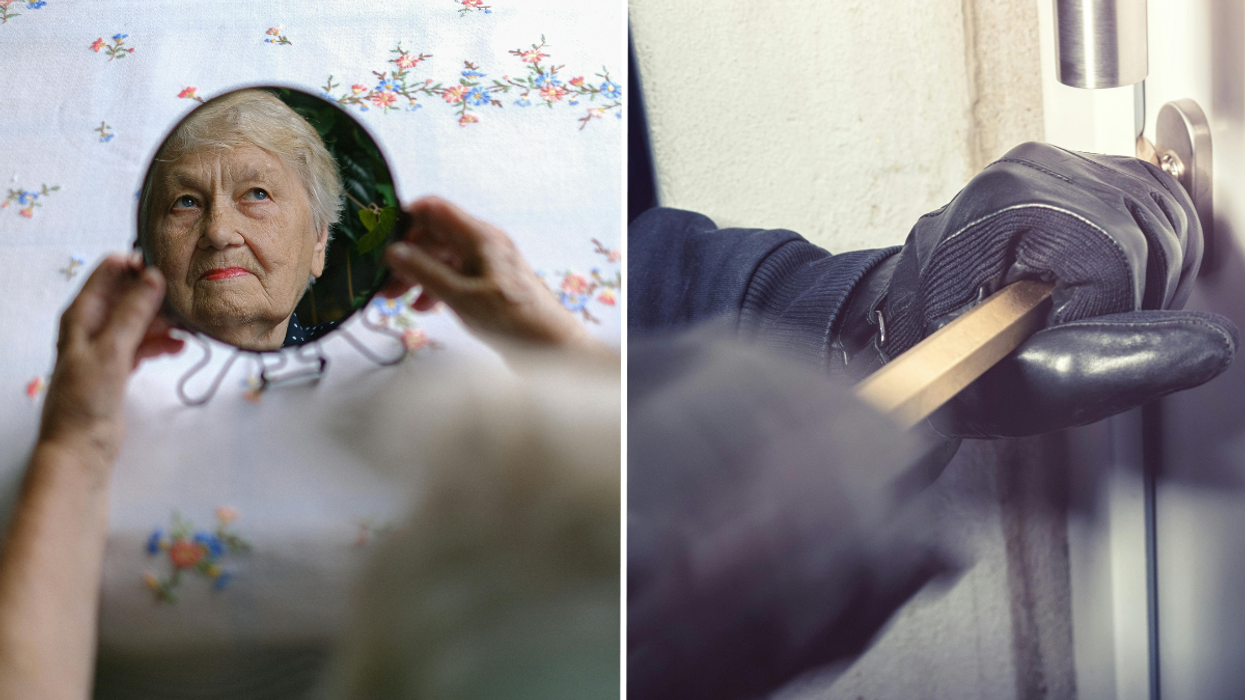



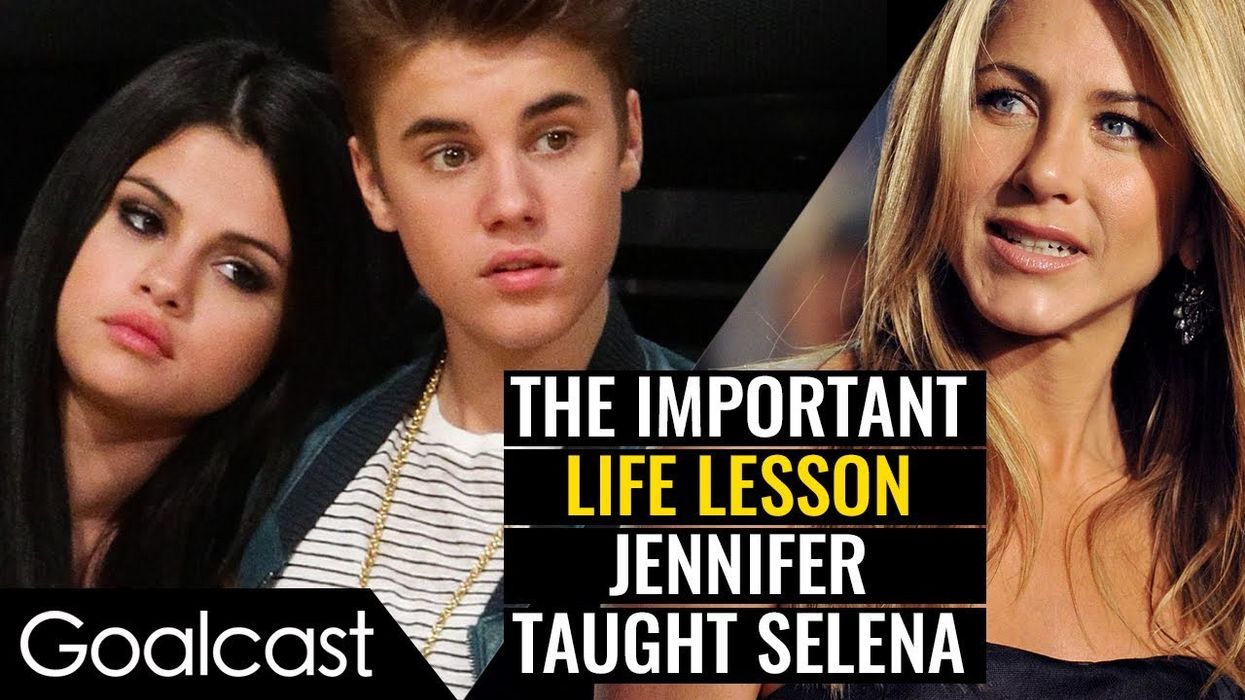





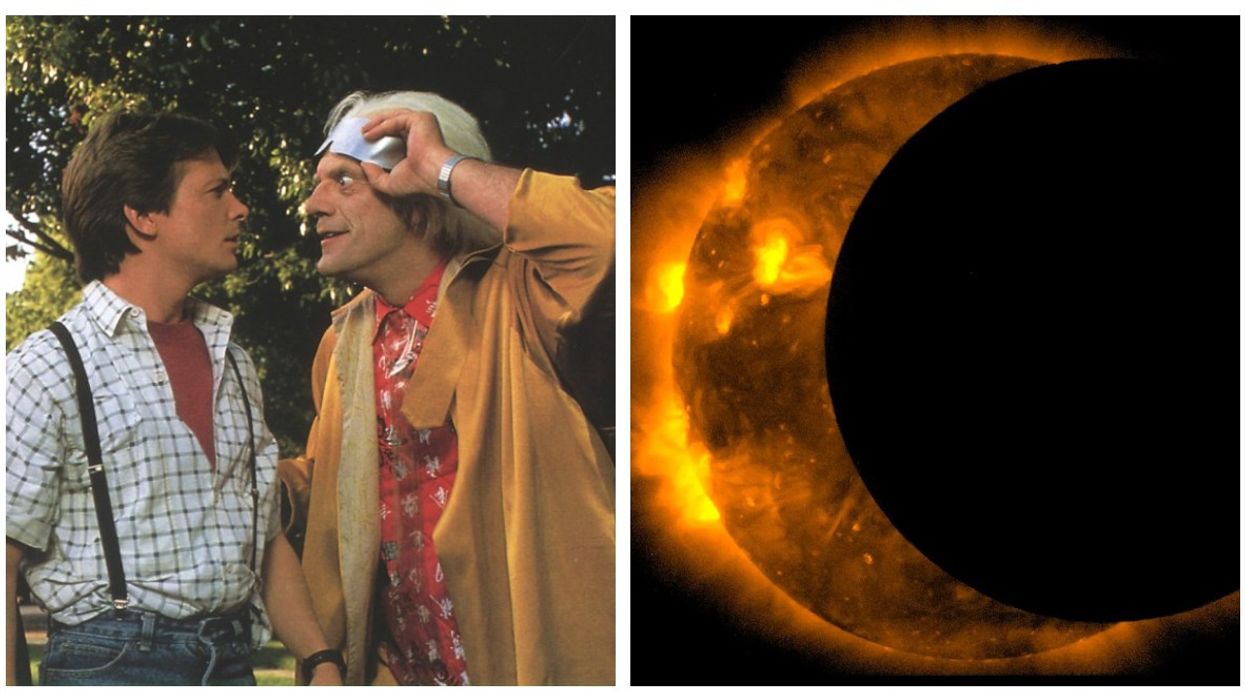
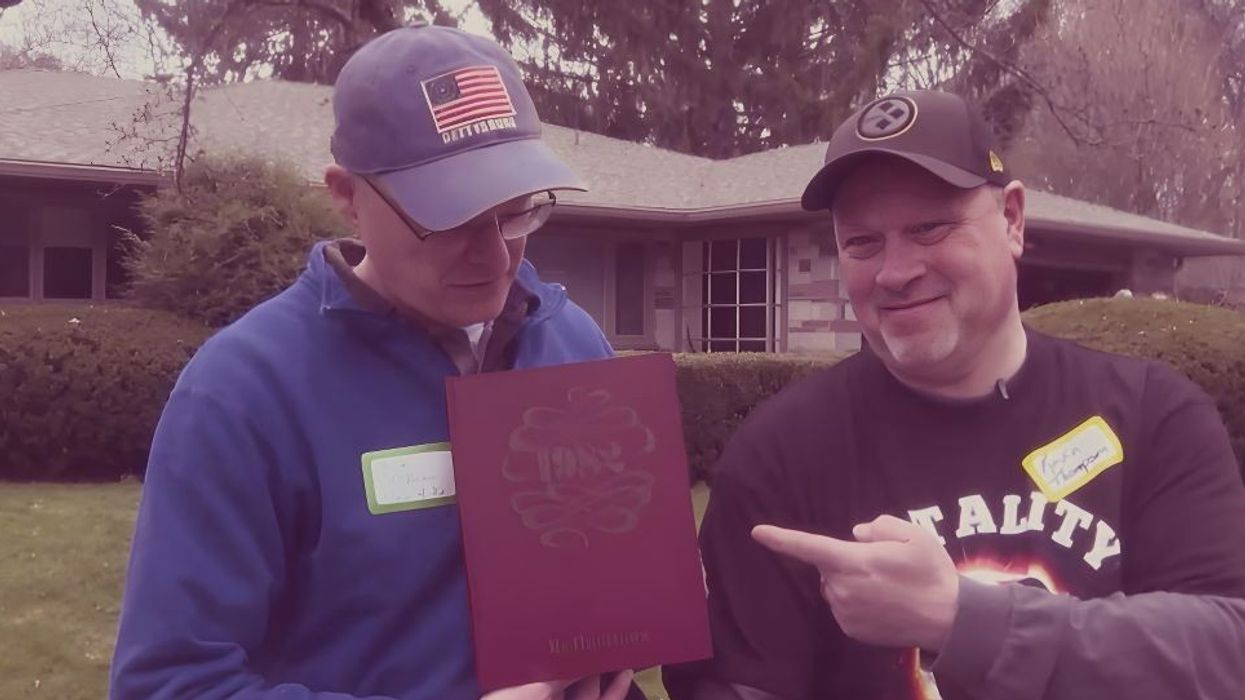 Two of Mr. Moriarty's students pose with their yearbook from 1982.WHAM via CNN / Video
Two of Mr. Moriarty's students pose with their yearbook from 1982.WHAM via CNN / Video man holding a yearbookWHAM via CNN / Video
man holding a yearbookWHAM via CNN / Video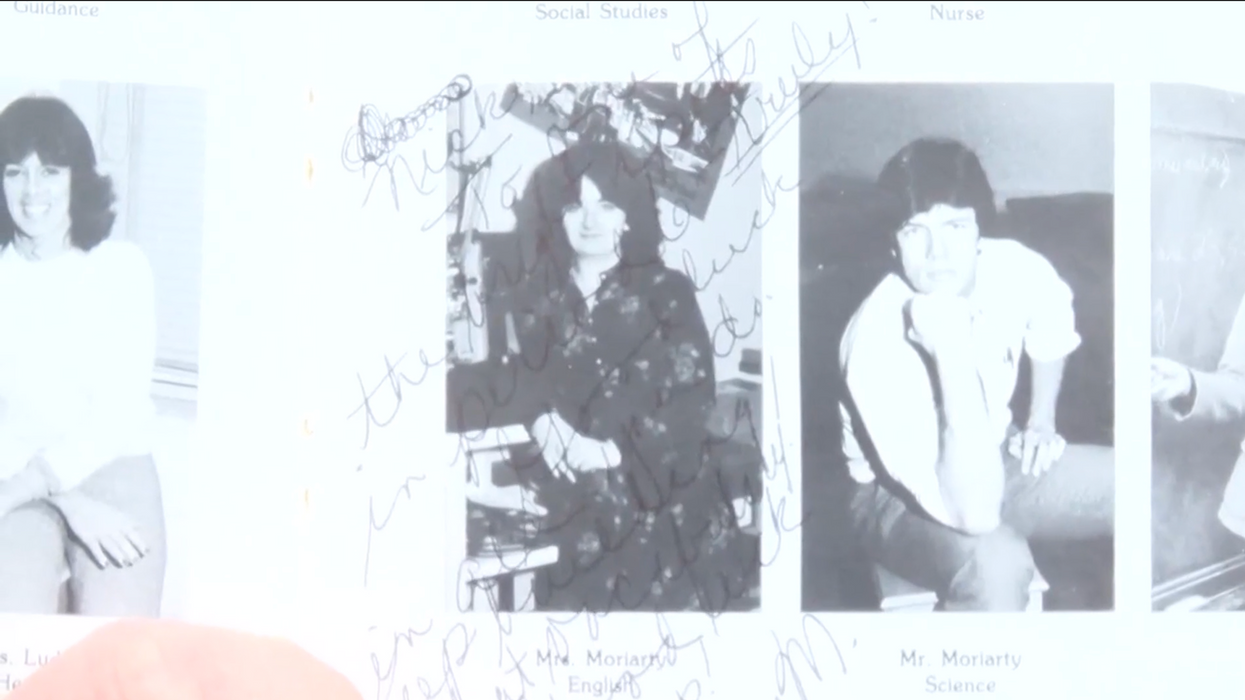 Black and white photos from school yearbookWHAM via CNN / Video
Black and white photos from school yearbookWHAM via CNN / Video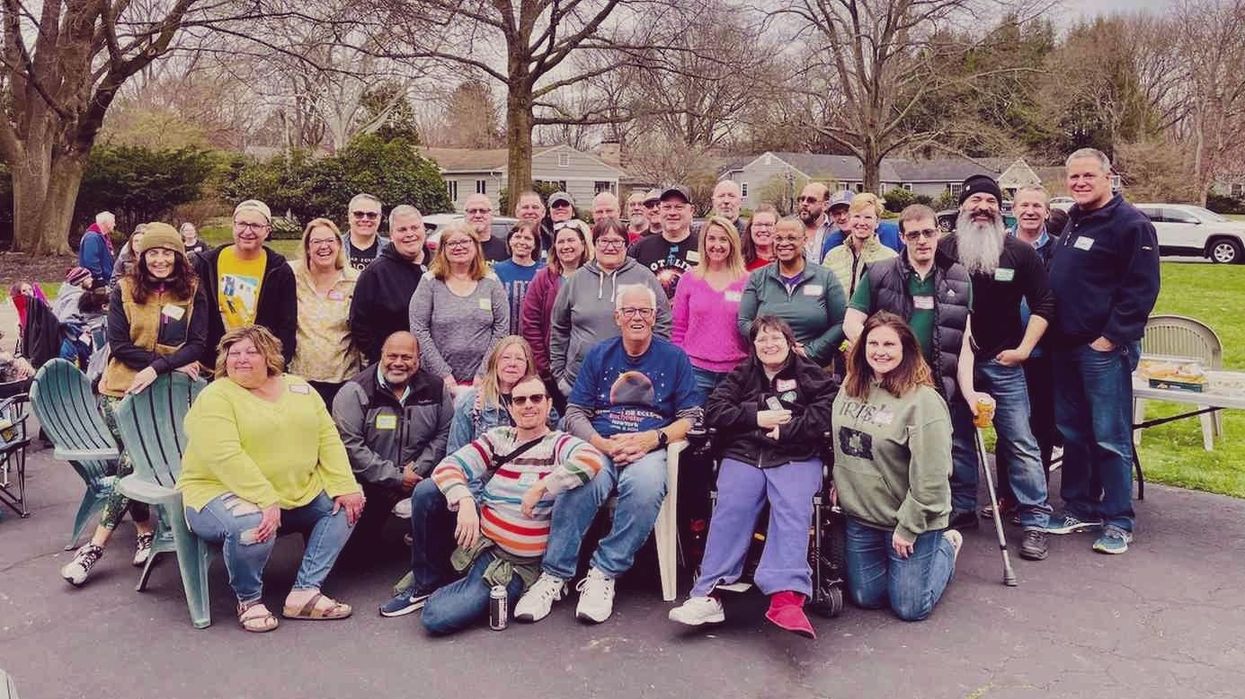 Patrick Moriarty (center, blue shirt) and a group of his former students watched the solar eclipse together on Monday in New York.Caitlin Moriarty Hynick
Patrick Moriarty (center, blue shirt) and a group of his former students watched the solar eclipse together on Monday in New York.Caitlin Moriarty Hynick
Military Dad Defends His 4 Little Daughters When Strangers Make This Rude Remark